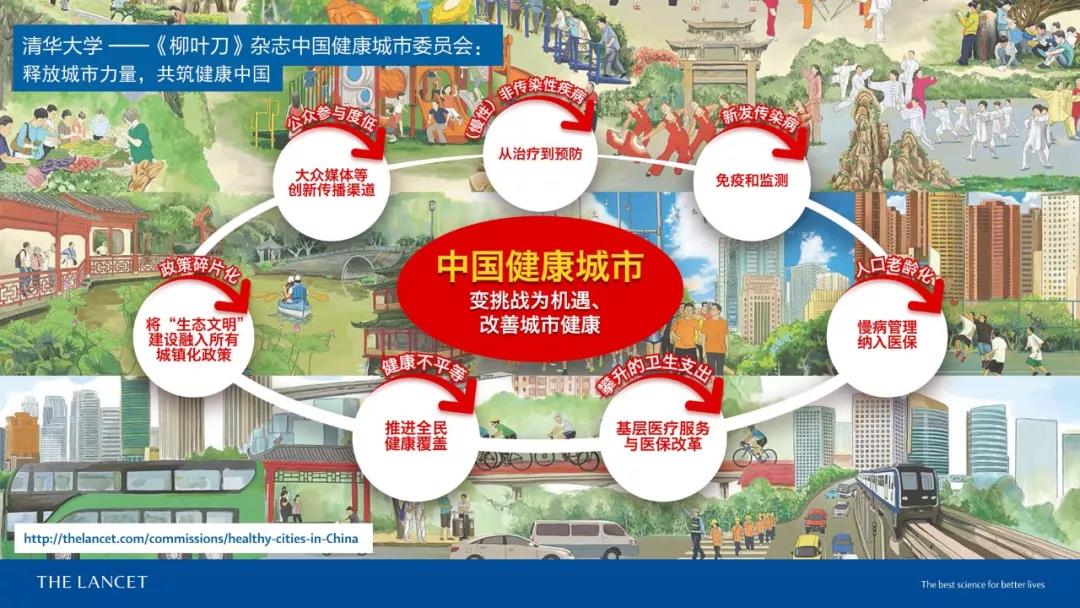On April 18, 2018, the department of earth system science of Tsinghua University and the Lancet, an internationally renowned academic journal, jointly held a press conference to release the special report onHealthy city: releasing urban power and building a healthy China.

The report, led by Tsinghua University, was completed in two years by a committee of 45 experts and scholars, from the National Health and Wellness Council Disease Prevention and Control Bureau, World Health Organization Representative Office in China, UNU Global Institute for Environmental Health, University of California, Berkeley, and many other institutions and universities.
The report points out that Chinese cities are facing many health challenges brought about by rapid urbanization, mainly reflected in the fact that non-communicable diseases are the leading cause of disease and death. New infections occur frequently, and deaths caused by injuries and injuries increase. The incidence of mental illness has risen, medical expenditures have risen and health equity has remained poor, and the demand for care for rapidly aging urban populations has soared. These challenges erode the health dividends that cities bring to residents and may become obstacles to China's socio-economic development in the future.
In particular, the report notes that Chinese cities have taken a number of actions to address the health challenges they face, including controlling environmental pollution, improving the livability of urban environments, strengthening disease prevention and control, promoting the spread of health care, and experimenting with new approaches to urban health management. All these actions significantly improved the health of urban residents, but also have inadequate existing measures, mainly reflected in the lack of understanding of the complexity of urban health, the lack of comprehensive management measures for environmental and socio-economic factors that affect health, the lack of collaboration between departments, and poor public participation and initiative. The report recommends a systematic approach -- building healthy cities to integrate decentralized management practices and address the complexity of urban health challenges.

The report is the first cooperation with Chinese research institutions in the nearly 200 years since the founding of the Lancet. The invited report, led by Chinese scholars from planning to writing and publishing, is a recognition of the academic level and international influence of Tsinghua University in the research field of healthy cities. The report was organized by the department of earth system science, Tsinghua University. School of architecture, medicine, journalism and communication and department of engineering and physics participated in the writing of the report, which was also strongly supported by the straits research institute and China institute of new urbanization of Tsinghua University. In order to make domestic academia, government and public have a better grasp of the content of the report, the report's creators translated the report into Chinese, now officially released!
We welcome criticism and rectification and exchanges to promote the construction and development of "healthy cities" in China.
Download link:
https://pan.baidu.com/s/1DH84ZN9mu-5hB0QMgHCZhg
Password: izvi
Special report link:
http://www.thelancet.com/commissions/healthy-cities-in-China
Conference website:
http://www.dess.tsinghua.edu.cn/publish/ess/Lancet/index.html